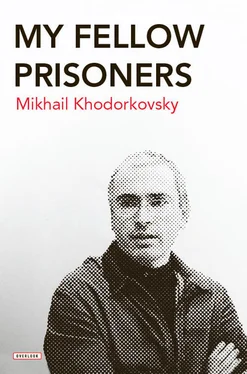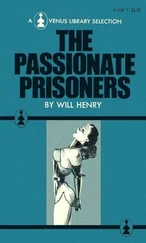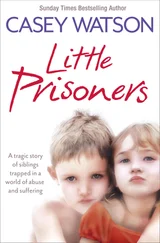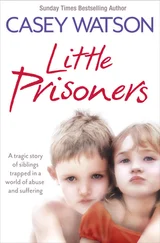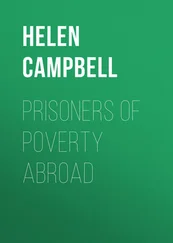He introduced himself as Konstantin. Older than many fellow lags, well over forty, thick-set and with a calm look in his almost jet-black eyes. We shook hands. It can get pretty boring in the quarantine block – most of the detainees they bring in are young. We gradually got talking.
Konstantin was a professional driver, but he’d spent his whole life working with sheep. He’d been tending the flocks at the local state farm. These flocks, some 9,000 strong, belonged to the state. Konstantin had been selling lambs on the side. When they caught up with him, he admitted everything. The loss was calculated at a million roubles, and he was offered the chance to repay it – but he refused. He got nine years. He had already done six and was getting ready for conditional release on parole.
‘They’ve told me they’re going to let me out.’
‘So, was it worth it?’ I asked.
‘Of course’ – not a moment’s doubt. ‘My daughter’s now at school in St Petersburg. A straight-A student. Where would she have gone otherwise? To work at the uranium-enrichment plant? No way! My wife and I are happy for her.’
‘What are you going to do?’
‘They’ll take me on as a driver again, I was promised. They know that I won’t touch anyone else’s stuff, everything’s privatized now, the owners are locals, our people. You don’t steal from your own, that’s about as low as it gets.’
‘What about going to St Petersburg, to your daughter?’
‘How would my wife and I do that? We don’t have that kind of money, anyway it’s too late.’
We sit there drinking our tea. Two men no longer young, who have both made a choice to go to prison. Loved ones are waiting for us at home, and we’re here, and it’s our decision. Was it the right one – who knows? I’m certainly not the one to judge Konstantin…
There was something totally dejected about him. Tall, nearly two metres in height, skinny and stooping, his nose badly broken, with small eyes, and huge swollen hands on long arms – hands that you couldn’t fail to notice immediately – Oleg was always to be found standing on the first floor of the barracks.
In fact, that’s what everyone called him – ‘First Floor’.
‘Hey, First Floor, where’s Abdulayev? They’re looking for him!’
‘First, the inspector’s coming. Let everybody know!’
‘Tell the supply officer to come over, will you, First…’
And so it would continue, all day long. The duty orderly’s assistant, a human walkie-talkie…
Things had been a bit different before, however. The first-floor position had been occupied by a professional grass, who had no compunction in planting a prohibited item (like a shank, a homemade knife) in the bedside table of anyone who crossed his path – and then tipping off the detention officer that he might want to do a ‘thorough inspection’.
This guy had felt he was the ‘floor boss’, and he’d yell and lash out at fellow prisoners, who couldn’t respond. He didn’t have the sense, however, to know where to draw the line. There was a ferocious, short-lived fight; he was sent to the punishment ward and then transferred to another detachment.
And now, Oleg. Quiet, diligent, but utterly opposed to mistreating anyone or informing on them.
One day we were out shovelling snow together. We got talking.
He’s thirty. Already a veteran drug addict. He’s had AIDS for several years but his immunity is still holding up, although he constantly gets weeping sores on his legs. Before prison he worked as a meat cutter. He liked his job, the money wasn’t bad. Enough to be able to buy drugs.
His intake increased. He had to switch to worse quality drugs. When they busted him he was immediately charged with possession because of the quantity. They beat him up badly, but he didn’t grass up his supplier. And so he was put away.
His partner also has AIDS. She’s an orphan. He’s only got his mother. She used to earn pretty good money, enough to get by. But now his mother’s fallen ill and things are very tight. His mother lives with his partner, who is 170 centimetres tall and weighs just 45 kilos. She’s very worried that she won’t last until his release.
When I ask him why he doesn’t take any medication, Oleg reveals a toothless grin.
‘If you start taking the medication you have to carry on. Or else it only makes you worse. My family can’t afford to buy it, it’s very expensive. But to get the free stuff – half the year it’s there, half the year it isn’t. When I get out, though…’
And then, under his breath: ‘If she lasts that long…’
‘So how did it come to this, Oleg, why did you fritter your life away like this? Why didn’t you quit the drugs?’
‘I tried to quit, several times. But then my mates would come along and it would all start off again… I don’t have the strength any more. When I get out, I’ve got to get away. But where do I go? And how? What about my mother, my partner…’
He sighs and carries on shovelling snow that falls like an endless shroud. A gangly, sad figure against a white swirling background.
It Will Come Back to Haunt You
Criminal behaviour in Russia’s labour camps is generally divided into ‘red’ and ‘black’ types. Both rely on a close partnership between the administration and the criminals, each pursuing their own – often entirely self-serving – interests. In the ‘black’ camps it’s usually a question of money from drug dealing, while in the ‘red’ it’s extortion. There are, of course, plenty of exceptions to this rule.
The methods of applying pressure are not stunningly original: beatings of varying degrees of intensity and seriousness. Usually it’s the prisoners themselves who do the beating, tacitly encouraged by the administration. Although the prison employees also like a bit of a ‘workout’ now and then.
To get early conditional release on parole you have to pay, whichever camp you’re in.
The claim that in the black camps it’s the criminal ‘authorities’ who run the show, in opposition to the administration, is no longer true – and hasn’t been for some time. The differences, on the whole, are strictly aesthetic: in the red camps there is a certain outward show of discipline while in the black there are unspoken rules, a prevailing ‘ideology’. And, while the administration is very visible in the red camps, in the black it hides behind the criminal element.
Over the last few years the situation has been gradually changing. ‘Black’ and ‘red’ are giving way to ‘bureaucratic’ criminality, which is the norm throughout the country. As physical violence has decreased, there has been an increasing tide of paperwork, regulations and selective application of the law. In other words the law is still not regarded as ‘gospel’, but at least people aren’t getting crippled so much.
Vyacheslav is a sturdy fellow with fiery red hair, around thirty-five to forty years old. He’s been inside a long time – since 2002. He used to be a member of a vicious local gang but the authorities couldn’t pin any murders on him, so having knocked out most of his teeth they put him away for extortion.
In prison Vyacheslav began to cooperate with the administration, and as a trusted representative he was given the job of handling my ‘adaptation’. The standard procedure for putting a new arrival in his place wasn’t going to work with me, as might be expected – after all, beating wasn’t allowed, I knew the laws better than most, and early release wasn’t exactly likely. So after a couple of days we moved on to having some heart-to-heart conversations.
I’d long ago worked out my own script for these encounters, but it’s very interesting to listen to what a typical ‘red camp’ inmate has to say. His words reveal an unconcealed, genuine hatred for those who have ruined his life – both the criminal fraternity and the authorities.
Читать дальше
